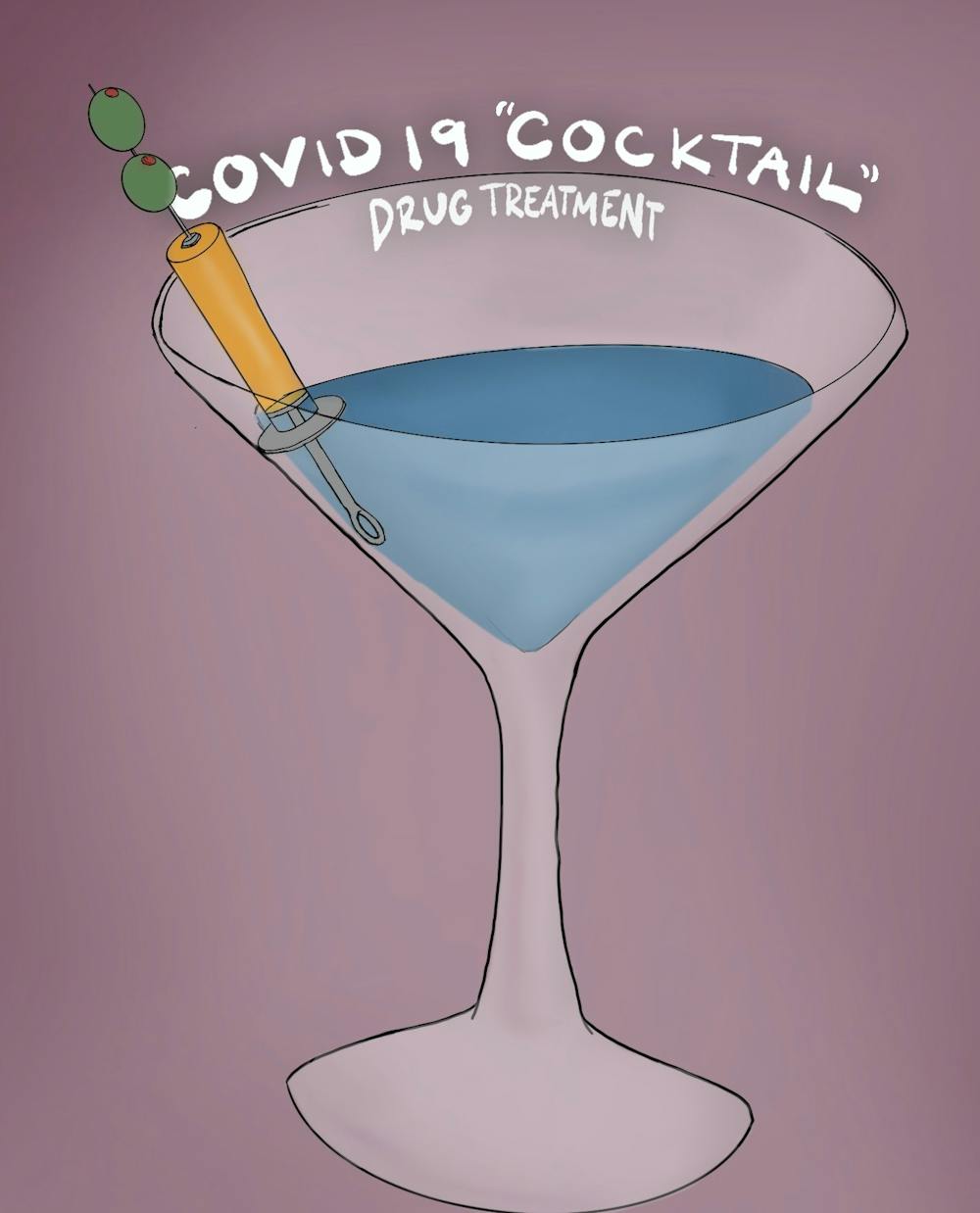An international COVID-19 drug development team led by Cell Biology Prof. Judith White is creating a unique drug cocktail that will serve as an accessible way to treat COVID-19 patients and as a preventive measure for those exposed to the virus.
White first began looking into the idea of combining medications designed for various viral groups starting with the Ebola virus in 2014. White and her team attempted to make an over-the-counter drug that could be used by anyone exposed to the Ebola virus. In the process, they reviewed nearly 2600 drugs for anti-Ebola activity. These drugs were also evaluated for anti-coronavirus activity at the time, which serendipitously provided the researchers with a strong foundation for their work during the COVID-19 pandemic.
White’s current research focuses on which drug combinations are the most effective for COVID-19 that contain available over-the-counter drugs.
Matthew Frieman, professor of microbiology at the University of Maryland and colleague of White on this research, explained that it is important for the drugs in the drug cocktail to interact with each other. Making sure that the drugs used were combinable and able to circulate properly into the body were the two main factors researchers had to take into consideration when testing the drug.
“That leverages many different data sets of different studies that are out there to show which drugs are even combinable because not all drugs make sense to combine when you actually put them in a human versus putting them in a petri dish,” Frieman said.
A total of 77 unique drug pairs have been tested and deemed successful. These combinations still need further testing before they are packaged and sold to the public as a viable drug for COVID-19. Additionally, White is looking into combining drugs with the antiviral drug Remdesivir, which has already been approved for use against COVID-19.
If this drug cocktail is successfully developed, it would not only help to combat COVID-19, but could also create a model for new drug cocktails to combat future pandemics.
“We can use datasets from this large panel of approved drugs,” Frieman said. “The goal is to have combinations that work for many different viruses, even the ones that we don't know exist yet.”
The combinations use multiple different drugs to increase potency. White said this is known as a “pan family” drug cocktail, meaning that multiple different drugs are used versus single drug therapies known as monotherapies.
“Our approach right from the get-go was to develop pan family drug cocktails that will be superior to monotherapies in terms of minimizing the development of drug resistance and, especially for repurposed drugs, lowering the needed dose of each component,” White said.
Researchers are also aiming to make the drug cocktail accessible to the public and easily transportable.
“We have long thought that the global community must be prepared with practical therapeutics in the wake of new viral outbreaks,” White said. “By practical, we mean drugs that can be taken at home that are oral or inhaled and that are inexpensive and temperature stable, so they can be rapidly and easily deployed anywhere they are needed.”
The new drug cocktail research has been widely supported, but health professionals and those in the pharmaceutical industry are concerned that the availability of the drug will deter people from receiving the COVID-19 vaccination.
Researchers have emphasized that this drug is not a replacement for the vaccine and almost acts like Tamiflu, a preventative drug that can be taken after exposure to the flu or very early on after feeling flu symptoms.
“The key to getting any of these drugs to work is that you have to take them very early in the infection,” Frieman said. “The milder the infection, the better the drugs work. So you need the combination of the vaccine and then the drug treatment for these to be really ultimately effective.”
The drug cocktail is still not finished and will need to be researched further before anything official is developed. Funding is a major stressor for the research team — with more funding, more staff can be put in labs to test drug combinations.
White and her research team have also been collaborating with other researchers using this same approach for new drug cocktails for other COVID-19 variants.
“We think that a similar approach can be leveraged to identify drug cocktails that would have utility in the first days of a new viral outbreak even, for example, for a new COVID variant,” White said.







